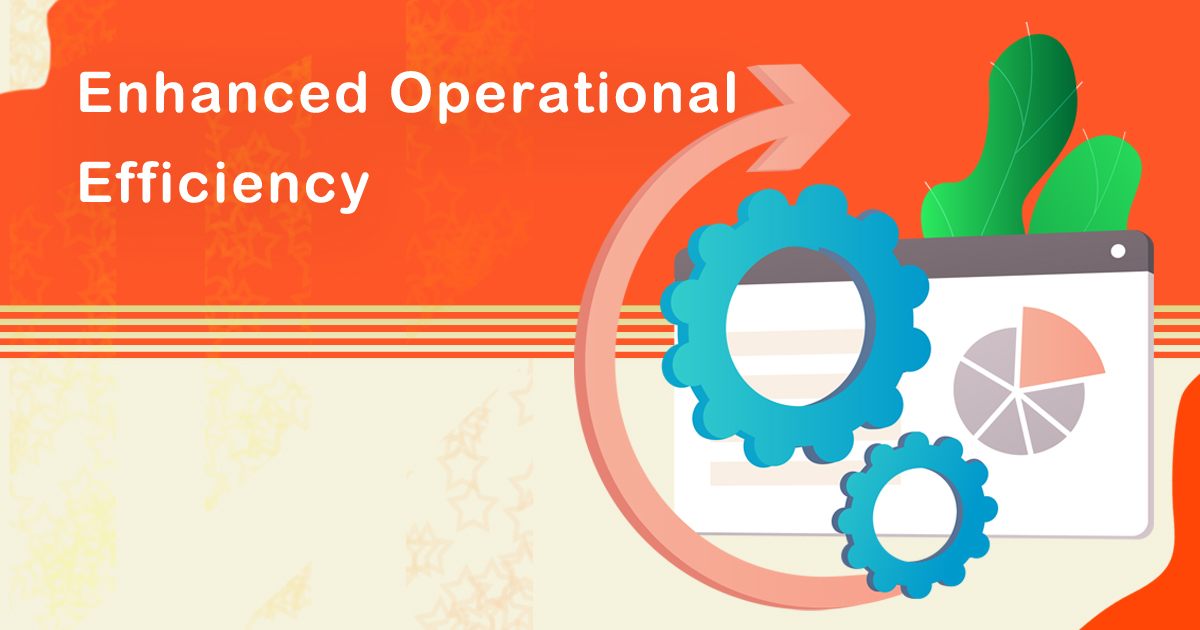Introduction
In today’s fast-paced and competitive business landscape, operational efficiency has become a paramount concern for enterprises across India. The pursuit of streamlined processes, cost reduction, and increased productivity has led organizations to explore innovative strategies for optimizing their operations. One such approach gaining popularity is Enhanced Operational Efficiency (EOE). In this blog, we will delve into the concept of EOE, its significance, and how it is reshaping businesses in the Indian context.
1 Understanding Enhanced Operational Efficiency (EOE)
Enhanced Operational Efficiency is a holistic approach that aims to maximize an organization’s productivity and profitability by optimizing various aspects of its operations. Unlike traditional efficiency measures, EOE emphasizes a comprehensive evaluation of processes, technology, workforce, and resource utilization to achieve sustainable growth.
2 Key Elements of Enhanced Operational Efficiency
Process Optimization:
EOE involves a meticulous assessment of existing processes and workflows. Through the identification and elimination of bottlenecks, redundancies, and inefficiencies, companies can streamline their operations, resulting in quicker turnaround times and reduced costs.
Technology Integration:
In the digital era, technology plays a pivotal role in enhancing operational efficiency. Adopting cutting-edge solutions, such as automation, artificial intelligence, and data analytics, can significantly improve decision-making, resource allocation, and overall performance.
Workforce Empowerment:
Employees are the backbone of any organization. EOE focuses on empowering the workforce through training, skill development, and providing them with the right tools to perform their tasks efficiently. A motivated and skilled workforce translates into higher productivity and improved customer satisfaction.
Resource Management:
Efficient utilization of resources, be it raw materials or capital, is vital for sustainable growth. EOE aims to optimize resource allocation, reduce wastage, and minimize environmental impact, aligning businesses with the principles of corporate social responsibility.
3 The Significance of Enhanced Operational Efficiency in the Indian Context
In the Indian business landscape, EOE holds particular relevance due to the country’s diverse and rapidly growing economy. Some key points highlighting its significance are:
Cost Savings:
India’s highly competitive market demands cost-effective solutions. Enhanced operational efficiency helps businesses cut unnecessary expenses, making them more competitive both domestically and globally.
Scale and Complexity:
India’s vast and diverse market presents unique challenges. EOE assists companies in scaling their operations efficiently and adapting to the dynamic market conditions.
Resource Constraints:
Many Indian industries face resource constraints, including limited infrastructure and skilled labor. EOE helps companies work within these limitations to achieve optimal results.
Sustainability:
With growing environmental consciousness, Indian consumers and regulators increasingly favor eco-friendly businesses. EOE aligns businesses with sustainable practices, enhancing their reputation and market standing.
Success Stories of Enhanced Operational Efficiency
Several Indian companies have successfully implemented EOE strategies and reaped significant benefits:
Tata Motors:
By streamlining their manufacturing processes and adopting automation, Tata Motors achieved a substantial reduction in production costs while maintaining product quality.
Hindustan Unilever Limited (HUL):
HUL utilized data analytics to optimize its supply chain and distribution networks. This resulted in reduced lead times and enhanced inventory management.
State Bank of India (SBI):
SBI embraced digital transformation, providing customers with user-friendly mobile banking solutions, resulting in increased customer satisfaction and reduced operational costs.
Conclusion
Enhanced Operational Efficiency is not merely a buzzword but a transformative business strategy. In the Indian context, where businesses face diverse challenges and opportunities, EOE offers a path to sustainable growth, cost-effectiveness, and enhanced customer satisfaction. Embracing EOE empowers organizations to thrive in an ever-evolving and competitive landscape, making it a crucial pillar for success in the Indian business realm.








